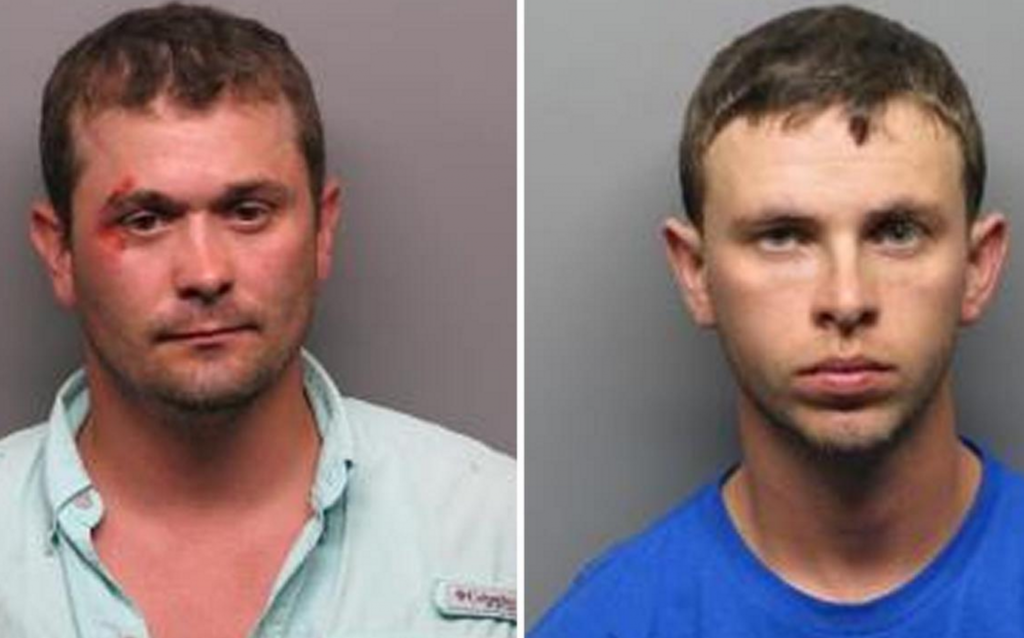Hate Crime Watch
2 Men Convicted of Hate Crimes in Sikh Man’s Assault
Published by the New York Times
Two men were sentenced on Thursday to three years in prison for attacking a Sikh man in California last year, repeatedly punching him through his car window and cutting off his hair.

This story was originally published by the New York Times
Two men were sentenced on Thursday to three years in prison for attacking a Sikh man in California last year, repeatedly punching him through his car window and cutting off his hair.
The men, Chase B. Little and Colton T. Leblanc, both of Texas, each pleaded no contest to felony assault with a hate crime enhancement in the beating of Maan S. Khalsa, 41, in Richmond, Calif., near San Francisco, on Sept 25, 2016.
Mr. Khalsa, an information technology specialist, was dressed in traditional Sikh garb, including a turban, while heading to a religious ceremony.
The defendants, along with three other men, had been drinking that day and were on their way to get a food when they pulled up next to Mr. Khalsa’s car, Simon O’Connell of the Contra Costa district attorney’s office said in October. Beer cans were thrown at Mr. Khalsa, who rolled down his window and said, “You guys forgot something.”
At the next red light, Mr. Little, 31, and Mr. Leblanc, 25, exited the truck and the attack began. They disturbed Mr. Khalsa’s turban and cut up to 10 inches of his hair with a knife. Unshorn hair is sacred in the Sikh religion, so the act of cutting it prompted the hate crime charge, the prosecutor’s office said.
Mr. Khalsa also sustained a black eye, tooth damage and knife wounds. Part of his little finger was later amputated because of an infection from one of the wounds.
In a statement he read to a full courtroom on Thursday, Mr. Khalsa said: “It will take me many years, maybe the rest of my life, to heal from this attack. But the recognition of the attack as a hate crime — as harm to my dignity and my entire community — is the first step in the process.”
The finding that the attack was a hate crime was crucial in this case, Mr. O’Connell, the prosecutor, said in an interview Thursday afternoon. “That really sent a message to the community to say that this sort of crime won’t be tolerated and will be taken seriously,” he said.
Mr. Leblanc’s lawyer, Joseph Tully, said in an interview that there was evidence that his client and Mr. Little were defending themselves, and that there was no evidence that racial slurs were used during the attack.
“The issue at trial would have boiled down to self-defense, not hate,” Mr. Tully said. But “in looking at what the defendants were facing versus the offer, we decided it was in the client’s best interest to accept the plea bargain.”
The maximum penalty Mr. Little and Mr. Leblanc had faced was 11 years in prison, Mr. O’Connell said in October.

-

 Column - State of InequalityJanuary 22, 2026
Column - State of InequalityJanuary 22, 2026On Eve of Strike, Kaiser Nurses Sound Alarm on Patient Care
-

 The SlickJanuary 20, 2026
The SlickJanuary 20, 2026The Rio Grande Was Once an Inviting River. It’s Now a Militarized Border.
-

 Latest NewsJanuary 21, 2026
Latest NewsJanuary 21, 2026Honduran Grandfather Who Died in ICE Custody Told Family He’d Felt Ill For Weeks
-

 The SlickJanuary 19, 2026
The SlickJanuary 19, 2026Seven Years on, New Mexico Still Hasn’t Codified Governor’s Climate Goals
-

 Latest NewsJanuary 22, 2026
Latest NewsJanuary 22, 2026‘A Fraudulent Scheme’: New Mexico Sues Texas Oil Companies for Walking Away From Their Leaking Wells
-

 The SlickJanuary 23, 2026
The SlickJanuary 23, 2026Yes, the Energy Transition Is Coming. But ‘Probably Not’ in Our Lifetime.
-

 The SlickJanuary 27, 2026
The SlickJanuary 27, 2026The One Big Beautiful Prediction: The Energy Transition Is Still Alive
-

 Column - State of InequalityJanuary 29, 2026
Column - State of InequalityJanuary 29, 2026Are California’s Billionaires Crying Wolf?

